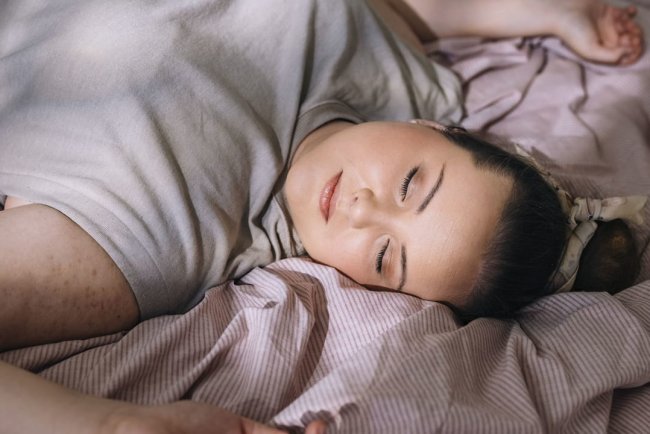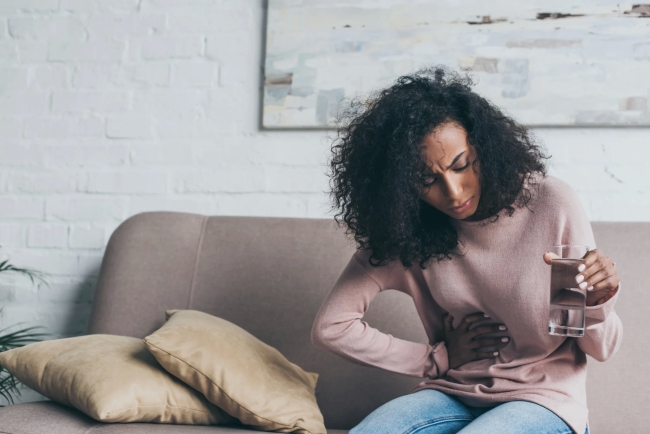Changes in my period why does my period last 2 days
Changes in the menstrual cycle, whether in its duration or frequency, are quite common and, in most cases, benign. However, they are often a cause for concern, so it is important to have information about them. We solve your doubts!

Changes in the menstrual cycle, whether in its duration or frequency, are quite common and, in most cases, benign. However, they are often a cause for concern, so it is important to have information about them. We solve your doubts!
To begin with, it is important to note that although the menstrual cycle is considered to last, as a general rule, 28 days, variations between 21 and 35 days, according to the Eunice Kennedy Shriver National Institute of Child Health and Human Development ( NICHD, for its acronym in English), are considered normal. Furthermore, these variations can occur from month to month, because there is usually no fixed pattern. Therefore, if one month your cycle lasts 25 days and the next 28, it is within the normal range.
This can also be carried over to the duration of menstruation. Although the average is usually 5 days, a period duration of between 2 and 7 days can also be considered normal. Therefore, if you have come this far because you have always heard that other women's menstruation lasts longer but it has always lasted between 2 and 3 days for you, you don't have to worry, because it is normal for you.
However, if you have come this far because your menstruation has undergone a change and now only lasts 2 days, when before it lasted longer, it may be necessary to consult your gynecologist to evaluate your case. We tell you why this change could have occurred.
Why does my period last 2 days?
If your period lasted longer before and has been reduced or delayed a little, it is most likely normal. If the changes are slight, do not last more than three menstruations, or are accompanied by other symptoms such as discomfort, pelvic pressure, pain during sexual intercourse, or bad odor of the discharge, you will have nothing to worry about.
However, we review some of the most frequent reasons why this could happen:
- Stress: a high period of stress can cause a change in the hypothalamus, which regulates the endocrine gland that generates hormones, the pituitary gland, and which can affect the function of the ovary. This is one of the most frequent causes.
- Thyroid problems: these can be unimportant specific alterations or more delicate problems such as hypothyroidism, which occurs when the thyroid gland does not produce enough of the hormone.
- Polycystic ovary: it produces alterations between the hypothalamus, pituitary gland, and ovary, which is why women who suffer from it usually have very irregular periods.
- Endometriosis: This disease causes the growth of uterine tissue outside the uterus, which can cause changes in your period, pain, nausea, tiredness, or diarrhea, among others. You can find more information about this disease in the Guide to Care for Women with Endometriosis in the National Health System.
- Hormonal contraceptives: Hormonal contraceptives can cause changes in the duration of menstruation in some cases.
- Premenopause: in the 3 or 4 years before menopause, changes in menstruation may occur and they may last longer or shorter.
If you want to know the experience of other women who have suffered changes in the duration of their period, you can do so in this conversation on the women's forum in which the topic of menstruation lasting 2 days is discussed.
In what cases should I consult a gynecologist?
When the change is prolonged, that is, it lasts for more than three menstruations and appears accompanied by other symptoms, the most appropriate thing is to go to the gynecologist. Special attention must be paid to the following menstruation disorders:
- Bleeding outside of menstruation.
- Pain: especially if periods have never been painful and now they are.
- Quantity: in this sense, the increase in quantity is more worrying than the decrease.
- Cessation of menstruation: if your period does not decrease, it is advisable to go to the doctor.
Although none of these situations indicate any health problem, it is advisable to go to a specialist to evaluate the case and determine what is happening.
What's Your Reaction?




















